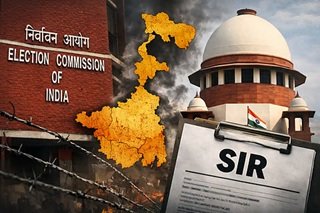The Relevance of Storytelling

News Mania Desk/Saikat Kumar Basu/2nd September 2024
Storytelling is the art of conveying events, real or imaginary, through words, images, sounds, and other forms of expression. It’s a fundamental human activity that helps us understand the world, share experiences, and convey complex ideas.
History of Storytelling
Oral Tradition:
Prehistoric Era: Storytelling likely began with the advent of language. Early humans used oral storytelling to share knowledge, traditions, and values.
Mythology and Folktales: Many ancient cultures, such as the Greeks, Egyptians, and Indigenous peoples, have rich traditions of oral storytelling, passing down myths, legends, and folktales through generations.
Written Tradition:
Ancient Civilizations: With the invention of writing, stories were recorded on clay tablets, papyrus, and stone. Notable examples include the “Epic of Gilgamesh” (Mesopotamia), “The Iliad and The Odyssey” (Greece), and ancient Egyptian hieroglyphics.
Religious Texts: Religious texts like the Bible, the Quran, and Hindu scriptures contain foundational stories that have shaped cultures and beliefs.
Middle Ages:
Manuscripts and Scribes: During the Middle Ages, monks and scribes copied stories and manuscripts by hand, preserving many classical works.
Epic Poems and Sagas: This era saw the creation of epic poems like “Beowulf” and Norse sagas, which blended history, mythology, and legend.
Renaissance and Enlightenment:
Printing Press: The invention of the printing press by Johannes Gutenberg in the 15th century revolutionized storytelling by making books more accessible.
Literature Flourishes: This period saw a boom in literature, with works by authors like Shakespeare, Cervantes, and Molière.
Modern Era:
Novels and Short Stories: The 18th and 19th centuries saw the rise of the novel as a popular form of storytelling, with authors like Jane Austen, Charles Dickens, and Leo Tolstoy.
Digital Age: The 20th and 21st centuries introduced new storytelling mediums like film, television, and video games. The internet has also transformed storytelling, enabling interactive and multimedia experiences.
Storytelling has evolved from oral traditions to written texts, and now to digital mediums, reflecting the changing ways in which humans communicate and share their experiences. Storytelling has profound socio-cultural, socio-economic, and socio-political significance:
Socio-Cultural Importance
Preservation of Culture and Traditions: Storytelling helps preserve cultural heritage by passing down traditions, customs, and values from one generation to the next.
Identity Formation: It helps communities and individuals understand their history and identity, fostering a sense of belonging.
Moral Education: Stories often carry moral lessons and ethical guidelines, shaping the values and behaviours of listeners.
Entertainment and Leisure: Storytelling has been a primary form of entertainment, bringing people together and creating shared experiences.
Socio-Economic Importance
Economic Opportunities: Storytelling can create economic value through books, films, theatre, and digital media, providing livelihoods for authors, performers, and other creative works.
Tourism and Cultural Events: Storytelling can boost local economies by attracting tourists to cultural festivals, storytelling events, and historical sites.
Branding and Marketing: In business, storytelling is a powerful tool for branding and marketing, helping to create emotional connections with customers and differentiate products and services.
Socio-Political Importance
Advocacy and Activism: Storytelling can be a powerful tool for social change, highlighting issues, influencing public opinion, and mobilizing support for causes.
Political Campaigns: Politicians and leaders use storytelling to connect with voters, communicate their visions, and persuade the public.
National Narratives: Nations often construct narratives about their history and identity that can unify citizens or promote specific ideologies.
Conflict Resolution: Storytelling can facilitate dialogue and understanding between conflicting parties, helping to bridge divides and promote peace.
Storytelling is a multifaceted practice that influences and reflects the socio-cultural, socio-economic, and socio-political fabric of societies.
Storytelling can be a powerful tool for mental health, providing emotional relief, fostering social connections, and aiding in personal growth and healing. Two kinds of stories form a big part of our lives- The stories that we keep telling others and the stories that others keep telling about ourselves. There is a significant connection between storytelling and mental health.
Storytelling can positively impact mental health in various ways:
Expression and Release: Telling one’s story can be therapeutic, providing a way to express emotions, process experiences, and release pent-up feelings.
Connection and Empathy: Sharing stories fosters connection and empathy, helping individuals feel understood and less alone. This can combat feelings of isolation and loneliness.
Cognitive Processing: Storytelling helps in organizing and making sense of complex experiences, which can aid in cognitive processing and understanding one’s life narrative.
Empowerment: Crafting and sharing personal stories can empower individuals, giving them a sense of control and agency over their experiences.
Therapeutic Techniques: Various therapeutic approaches, such as narrative therapy, use storytelling as a tool to help individuals reframe and reinterpret their experiences in a more positive or constructive way.
Memory and Identity: Storytelling helps in preserving memory and building a coherent sense of identity, which is crucial for mental well-being.
There has been resurgence in storytelling around the world. Several factors contribute to this trend. Advances in digital media and technology have made it easier for people to share stories. Platforms like podcasts, YouTube, and social media allow storytellers to reach a global audience. There is also a growing interest in preserving cultural heritage and traditions. Storytelling is a key way to pass down cultural knowledge, values, and history. Storytelling is increasingly recognized for its therapeutic benefits. It can be a powerful tool for healing, helping individual process experiences and emotions. Stories are a compelling way to entertain and engage audiences. In a world filled with information, storytelling stands out as a way to capture attention and convey messages effectively. It also fosters a sense of community and connection. Events like story slams and storytelling festivals bring people together and create shared experiences. Lastly, storytelling is an effective educational tool. It helps make complex information more relatable and memorable, enhancing learning experiences






